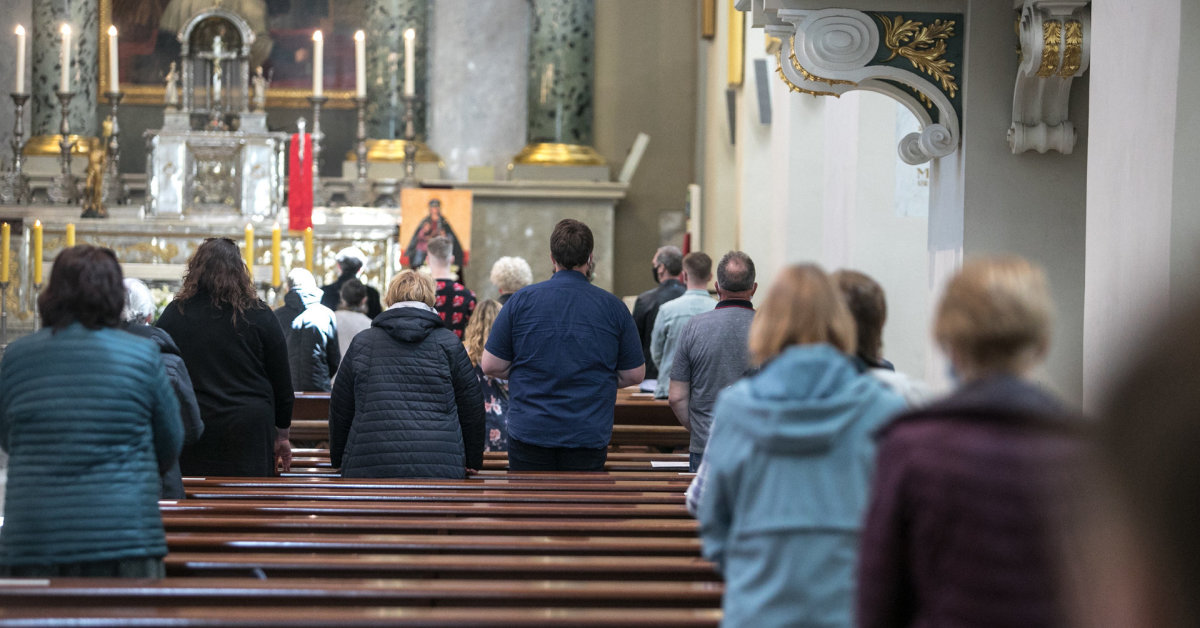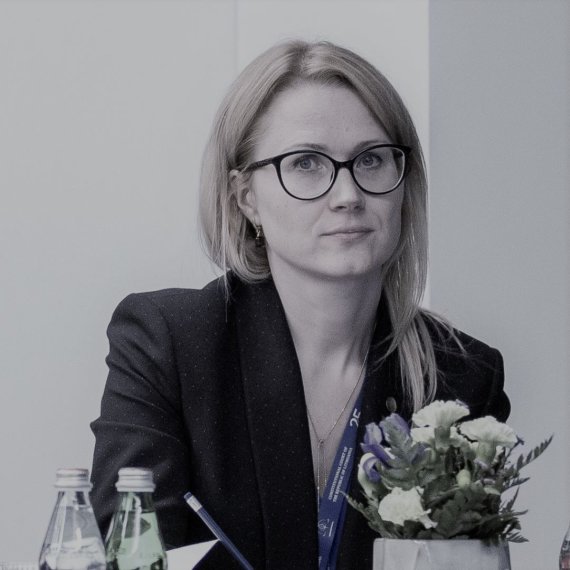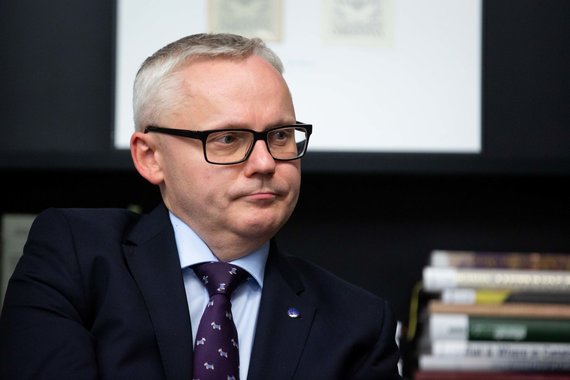
[ad_1]
The Episcopal Conference of Lithuania has announced that it will resume public services with the faithful from next Monday, January 11. She promises that in the church a person will be at least 10 square meters, a distance of two meters between people will be kept, they will have to wear masks.
Neither during the first nor the second quarantine, the Government of Lithuania did not accept binding instructions for the Church regarding the organization of services, only recommendations.
Under the current resolution, the government recommends abstaining from religious rites or organizing them remotely, with exceptions only for funerals where it is proposed to limit the number of people.
The church has a special status
The Constitution of Lithuania states that churches and religious organizations freely perform their rites and conduct themselves according to their canons.
The Catholic Church has a special legal status due to the agreement between Lithuania and the Holy See signed in 2000.
According to him, Lithuania recognizes “the freedom of the Catholic Church and its communities to perform public services, organize, teach and provide pastoral care to the faithful, and recognizes the full competence of the Catholic Church in its field.”
Ingrida Danėlienė, a lawyer from Mykolas Romeris University, emphasized that this agreement has “priority over national laws and other inferior legal acts, including government resolutions and ministerial orders.”
According to her, the provisions of the Constitution mean that “any restriction to this freedom must be based on the law, be proportionate and can be assessed by a court in each case.”
The lawyer pointed out that the Government Resolution does not directly establish a prohibition to perform services, general requirements apply.
According to I. Danėlienė, courts in other countries have already had to assess the legality of restrictions on religious services applied to prevent the spread of the COVID-19 virus.

Photo from personal archive / Ingrida Danelienė
“The Federal Constitutional Court of Germany has recognized the general prohibition of the practice of all religious rites and masses as a serious violation of religious freedom and, therefore, contrary to the Basic Law. The court emphasized that the state must allow churches perform rites if security measures are taken during their organization and the number of participants is limited. The United States Supreme Court made a similar decision a couple of months ago. The French Council of State had forced the state to scientifically justify the limiting the number of participants in worship to 30 people to assess the proportionality of these restrictions, ”I. Danėlien dijo told BNS.
Formally justified, but responsible?
Vytautas Mizaras, a professor at the Vilnius University Law School, says that the Catholic Church’s decision to resume services could be formally justified by the provisions of the Constitution and the bilateral international agreement, but it is doubtful whether such a step will be measure responsibly.
Considering that the profession of religion, including the rites, is one of the fundamental constitutional rights, as well as the provisions of the Treaty of the Republic of Lithuania and the Holy See, Lithuania recognizes the freedom of the Catholic Church to carry out its pastoral mission, apostolic and charitable; it would seem that such a position and decision of the Catholic Church may be formally justified.However, on the other hand, there are no freedoms that cannot be restricted, and here the legitimate question arises as to whether such actions and their possible consequences they are considered appropriately and responsibly in light of the pandemic situation and the threat to human health. Personally, I have doubts as to whether that decision is correct in the current situation, “V. Mizaras told BNS.

Photo by Sigismund Gedvila / 15min / Vytautas Mizaras
The lawyer says the Church must assess whether to show solidarity with secular institutions and society as a whole, which are subject to strict assembly bans.
“On the one hand, the restrictions must be proportionate and cannot deny freedom or the right itself. On the other hand, in this situation, we have to assess whether it would really be a disproportionate restriction to abstain from ordinary rites for a certain period of time. , while protecting the health of ecclesial communities (people) and the rest of society. It would seem to me that, in a situation like the current one, it would be more responsible to refrain from attending rites. In any case, the responsibility for such decisions it must be assumed by those responsible, ”said V. Mizar.
Are they meetings of religious rites?
Vytautas Nekrošius, a professor at the Vilnius University Faculty of Law, says the issue is not unequivocal, but takes the position that the ban on assemblies should also apply to the Church. “The treaty does not provide for the immunity of the Church from the laws in force in Lithuania. When it comes to public health and safety, the Church must follow the same order as any other organization. The general ban on meeting is the ban on meeting anywhere, including the church, unless exceptions are established in the government resolution or in the law itself, ”V. Nekrošius told BNS.

Photo by Josvydas Elinskas / 15min / Vytautas Nekrošius
In his opinion, the Government of Lithuania could impose a strict restriction and, in the event of a dispute with the Church, it could be resolved by a Mixed Commission made up of both representatives, as provided for in the treaty.
The government website states that current quarantine conditions prohibit all events and gatherings, with the exception of high-profile sporting competitions without spectators and funerals, which can be attended by up to 10 people.
People can leave their place of residence only for work reasons, go to a store, a funeral, to their own real estate, to airports, seaports, bus stations, to walk in open spaces or to care for sick people.
These quarantine conditions are valid until January 31.
[ad_2]